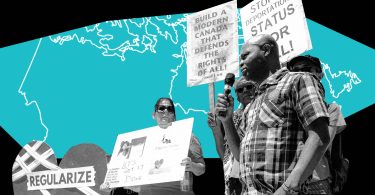An appeal by Jay Mulucha, transman from Uganda and Executive Director FEM Alliance Uganda, for voices to be heard resonated with the huge majority at the 25th International AIDS conference that got underway on Monday.
“We face threats to our life. Let us be heard,” the transman said, talking about the impact of Uganda’s 2023 Anti-Homosexuality Act, which outlaws sexual relations among members of the same sex and imposes the death penalty to “serious homosexual acts”.
“In Uganda, despite some rollbacks on a few of the harsher policies under the Anti-Homosexuality Act, there remains a discrepancy between these changes in policies and what is actually being implemented on ground. Violations are still taking place, including denial of access to healthcare services and housing, despite the government claiming that this situation has changed,” Mulucha said.
“Sanctions and penalties being placed by the international community on the Ugandan government are working. However, the lifting of these sanctions needs to be contingent not on changes in policy, but on evidence of changes in implementation. For this, you need to listen to the communities and hear what we are saying. We are still suffering and need your support more than ever, so the funding being denied to the government should be funnelled directly into LGBTIQ organisations and communities in Uganda.
For Shyam Konnur, Pune based founder of MIST LGBT foundation, who was present at the event, the opening event at AIDS 2024 was very powerful, he told The Indian Express. “It gives us hope for a better future. I wish we had a stronger connection with the Indian government which would support smaller NGOs to create a change in the field of HIV and LGBTQ inclusion,” he said.
More than 10,000 participants are attending AIDS 2024, the world’s largest gathering of people, who are living with, affected by, and working on HIV, taking place in person in Munich, Germany, from July 22 to 26. German Chancellor Olaf Scholz also spoke on the occasion.
“All around the world, regressive policies, attacks on human rights, the spread of misinformation, cuts to global health funding, and waning trust in international institutions are roadblocks to progress. To end HIV as a threat to public health and individual well-being, we need an evidence-based HIV response and a political climate that respects science.” Sharon Lewin, AIDS 2024 International Co-Chair
“We’ve seen incredible breakthroughs at AIDS 2024, including a new case of long-term HIV remission and a promising twice-yearly injection to prevent HIV,” said Sharon Lewin, IAS President and AIDS 2024 International Co-Chair.
Advertisement
“While these advances are a cause to celebrate, science doesn’t happen in a vacuum. All around the world, regressive policies, attacks on human rights, the spread of misinformation, cuts to global health funding, and waning trust in international institutions are some of the roadblocks to progress. To end HIV as a threat to public health and individual well-being, we need an evidence-based HIV response and a political climate that respects science.”
The theme of AIDS 2024 calls on the global community to put people first. “Ukrainian public health leader urges action in eastern Europe and central Asia AIDS 2024 includes a special focus on eastern Europe and central Asia, a region with one of the fastest-growing HIV epidemics in the world.
“While most other regions around the globe have managed to stabilise their HIV epidemics, in eastern Europe and central Asia, it is rapidly increasing,” Andriy Klepikov, AIDS 2024 Regional Co-Chair said. “Only half of the people living in our region are on antiretroviral therapy, nowhere near the global target of 95 per cent. At the root of the region’s epidemic are drug use, stigma and harmful policies – exacerbated by violent conflict.
“In my country, Ukraine, public health services are delivered against a soundtrack of constant air sirens as we struggle to restore basic access to health care since the Russian invasion. Progress will require major change and innovation, removing policy barriers and respecting the rights of the communities most affected by HIV,” he added.







